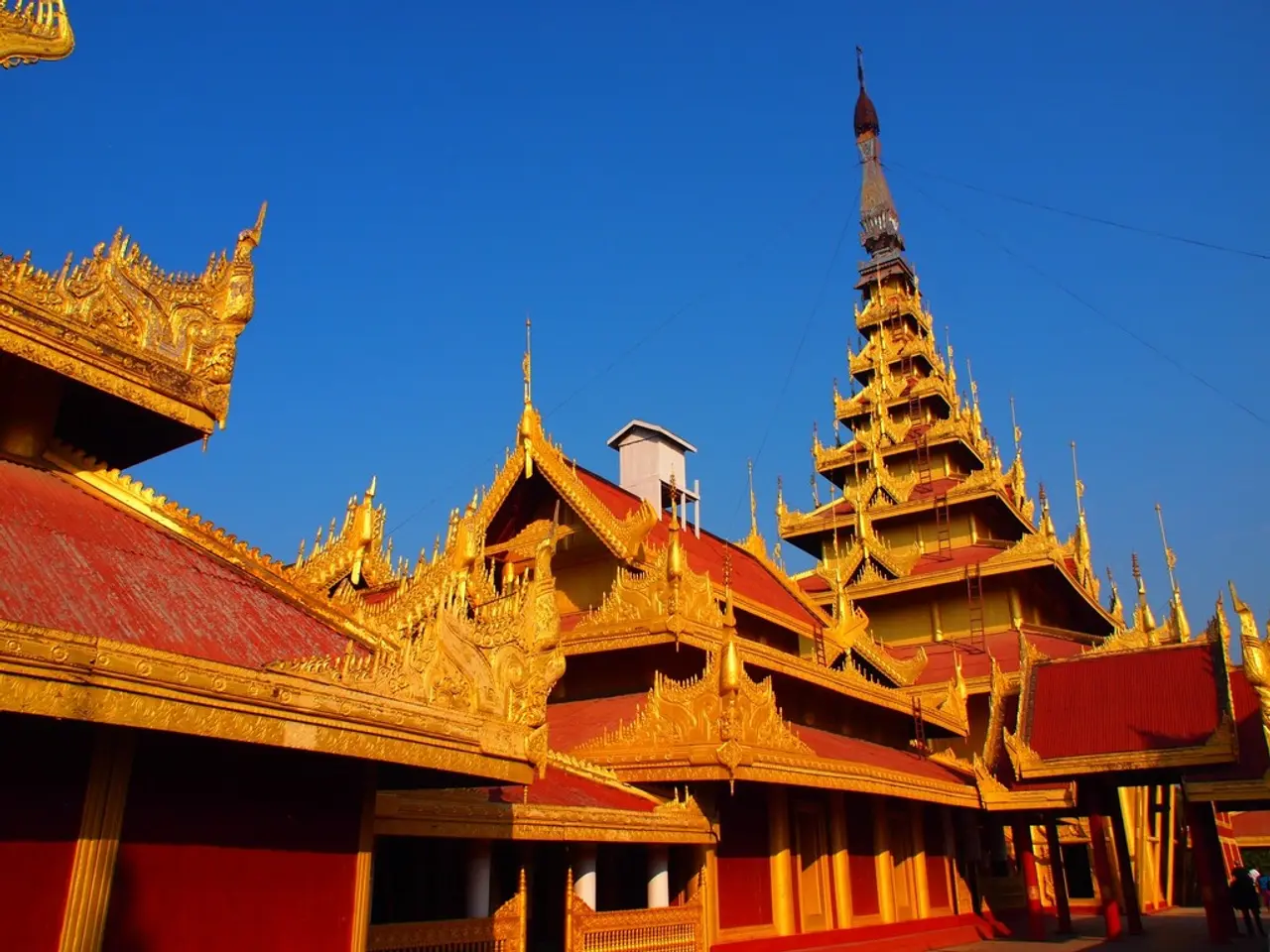Exploring Vietnam: Recommended Travel Guidelines and Suggestions
Vietnam, affectionately known as the "land of the ascending dragon," offers a unique blend of culture, history, and natural beauty that attracts travellers from around the world. This article aims to provide a helpful guide for UK citizens planning a trip to this captivating destination.
Firstly, it's essential to know that the official currency in Vietnam is the Dong (VND). Most ATMs in the country offer free withdrawals, but it's crucial to check fees with your bank before travelling.
When it comes to visas, UK travellers have two main options: e-visa and visa on arrival. As of July 2025, the e-visa system, which allows stays of up to 90 days with single or multiple entries, can be applied for online through official Vietnamese government portals. Visa on arrival, on the other hand, requires pre-approval from the Vietnam Immigration Department and is only available at certain international airports.
For UK travellers, the e-visa is a convenient option for shorter stays and trips with fixed dates, while visa on arrival requires prior online approval and is more suitable for those who prefer to arrange their visa upon arrival at the airport.
Regarding travel within Vietnam, the country has three different weather systems. North Vietnam (Hanoi, Halong Bay, Ninh Binh) experiences cool and dry winters (November to April) and hot and humid summers (May to October) with high rainfall. Central Vietnam (Hue, Hoi An, Danang) is hot and dry from mid-January to late August, with temperatures reaching the mid 30s. October to November is typhoon season. South Vietnam (Ho Chi Minh, Mekong Delta, Phu Quoc) has relatively constant temperatures throughout the year, with the dry season running from November to April/May and the rest of the year being rainy season.
Vietnam is home to numerous attractions, including the UNESCO World Heritage Site, Halong Bay, with its thousands of towering limestone islands in the emerald waters. In the Mountainous Far North (Sapa), hiking amongst the rice terraces is a must for nature-loving backpackers. Homestays in a Hmong village in Sapa provide an opportunity to get to know the local culture.
Travellers seeking adventure can embark on a Castaway Island booze cruise, offering the best party in Vietnam, or explore the Mekong Delta, known for its floating markets and verdant landscapes.
It's important to note that tips aren't expected in Vietnam, but they will be appreciated. A rough guide for tipping is: hotels - not expected but appreciated for cleaning staff; restaurants - leave 5% to 10% for good service; guides - a few dollars per day; taxis - round up or leave small change; bars - not expected.
When travelling to Vietnam, remember that all visitors, except holders of passports from member countries of the Association of Southeast Asian Nations (ASEAN), require a visa to enter the country. However, as of Update 2024, visitors from the UK (and some other countries) can now enter Vietnam for up to 45 days without a visa.
During the Vietnamese New Year's festival of Tet, transport and hotels can be sold out weeks in advance, prices rise, and it seems the whole country is on the move. The date varies depending on the lunar calendar but generally falls in February or the end of January.
Lastly, the most common electricity voltage in Vietnam is 220V, 50 cycles, with plug types A, C, and G in use. The most common plug type is C - the European two-prong plug style.
With its rich culture, stunning landscapes, and friendly people, Vietnam is a destination that should not be missed. Whether you're a seasoned traveller or a first-timer, this guide provides a solid foundation for planning your adventure in Vietnam. Happy travels!
[1] https://www.vietnam-visa.com/e-visa/ [2] https://www.gov.uk/foreign-travel-advice/vietnam/entry-requirements [3] https://www.vietnam-visa.com/visa-on-arrival/ [4] https://www.gov.uk/foreign-travel-advice/vietnam/entry-requirements [5] https://www.gov.uk/foreign-travel-advice/vietnam/visas
- For travel tips in Vietnam, it's important to know that the country's official currency is the Dong (VND), and most ATMs offer free withdrawals, but it's crucial to check fees with your bank before traveling.
- When planning a trip to Vietnam, UK citizens have two main visa options: e-visa and visa on arrival. As of July 2025, the e-visa system allows stays of up to 90 days with single or multiple entries, which can be applied for online through official Vietnamese government portals.
- Regarding travel within Vietnam, the country has three different weather systems. North Vietnam experiences cool and dry winters and hot and humid summers, while Central Vietnam is hot and dry from mid-January to late August, and South Vietnam has relatively constant temperatures.
- Vietnam offers numerous attractions, including the UNESCO World Heritage Site, Halong Bay, and the Mountainous Far North, where hiking amongst rice terraces and homestays in a Hmong village provide opportunities to get to know the local culture.
- When in Vietnam, remember that tips are appreciated, not expected, with a rough guide for tipping: hotels - for good service; restaurants - leave 5% to 10%; guides - a few dollars per day; taxis - round up or leave small change; bars - not expected.






